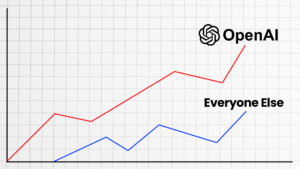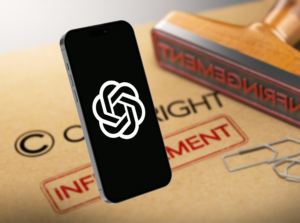Social CRM (customer relationship management) is a newer term used to describe the combination of social media and customer service.

Source : ismguide.com
It is used in several ways, but it is always to connect with customers through different channels and understand their needs.
This helps businesses improve customer satisfaction, loyalty, and sales. Let’s take a closer look at social CRM and some of the ways it’s being used today.
What is Social CRM?
Social CRM is a software program that helps you manage your company’s social media accounts. It allows content creation, monitoring feedback from posts and channels over time, and alerting users when specific things happen, such as product launches or promotions, occur in their surrounding area.
Why Is Social CRM Important For Businesses?
The power of social media has been around for years now, and yet it’s only recently that we’ve seen the rise in popularity with companies using this channel as their primary form.
Social CRM is one way to take advantage because not only can you reach customers on various channels like Facebook or Twitter; if they engage enough, then your system will also provide more insight into what sentiment people have towards your brand/products.
The Best CRM systems help give your customers the attention they deserve by making their dynamic profile available across different teams.
This includes customer service, marketing, and sales personnel who can use this information to serve them better.
What Does Social CRM Do?
The great thing about social customer relationship management is that it’s not just for marketing your business but also helps with sales and service.
With its ability to provide an interface into Facebook updates or LinkedIn messages – among other things- this software can be used in many different capacities.
Marketing through social media is an integral part of building your brand. When you use a CRM for marketing, it can help plan and schedule posts and give insights into which ones are doing well so that future efforts won’t be wasted.
The Social CRM is not just an ordinary address book. It also keeps all your social contacts in one place, with their profile data and every single conversation you have had ready for when it’s time to connect again.
In the ever-changing world of social media, it’s more important than ever to keep up with what people are talking about. You never know when your customer will find you through one of these channels.
How Social CRM Process is implemented?
The social CRM platform is a powerful tool for businesses of all sizes. It benefits every department that works with customers or leads, giving them an improved view of who they’re talking to – from sales through tech support and even product development.

Source : findmycrm.com
Here are the steps to implement a social CRM for your business;
1.Setting up a Social Listening Program:
It involves tracking brand names, including conversations about:
- Your Company
- Products and services
- Key people within your organization
- Targeted keywords across social channels
As online marketing becomes increasingly competitive, finding existing social conversations about your brand or niche is important.
These discussions provide an easy way for potential customers and clients to get engaged in what you have going on – from the latest news releases to blog posts chronicling every event!
Customer complaints and potential business leads can benefit from social data, which is an excellent starting point for adding this information to your CRM.
2.Consolidating Social Conversation:
With the ever-growing need for customer service, ensuring your team has easy access, and visibility into all channels is more crucial than ever.
Consolidating that information in one inbox ensures you’re not missing anything important with CRM data tied back to people instead of just profiles.
3.Integrating Social Data Into Existing CRM:
Many companies are turning to social data to integrate it with their customer relationship management (CRM) systems.
Platform integrations simplify this process, as many existing CRMs can be connected using a simple connection setup and some programming skills.
4.Awareness of Social CRM Challenges:
The process of connecting social media data with an enterprise CRM can be bumpy, but there are some potential snags that you should know.
5.Change can be Overwhelming:
The sales and customer service teams may have difficulty adjusting to the new CRM system. They’ll need training on how it all works or reevaluate their approach entirely.
Help employees understand how social media CRM can help their company by providing benefits for customers and leads.
Point out the advantages of having more history with each individual and higher quality prospects through this new system.
6.Can’t Expect Results Overnight:
You could be spinning your wheels when it comes to finding out what people think about you on social media. But if you’re patient, it will show up eventually.
This might sound like a slow process at first, but as you grow your social media following and the data fed into CRM improves over time, you will be able to see an increase in growth. It’s not something you should give up on quite yet – patience pays off.
7.Can Be Overwhelmed By Data:
Maybe you’re one of those brands with a large social following, or people are already talking about your brand on Facebook, Instagram, and Twitter. In this case, it can be hard to keep track of all the new data coming in because there’s too much.
The great option in this system is that it’s completely customizable. You can choose which types of interactions and data you want in your CRM so that no customers will have the same experience.
Benefits of Social CRM Software:
1.Best Customer Service:
Social CRM is a powerful tool for service representatives to better engage with customers. Social listening allows you never to miss the chance of reaching out and responding when someone has questions or issues, so it’s best that they contact your social media profiles instead.
2.Build New Relationships:
Monitoring what people are talking about you on social media can give a company insights into their audience’s preferences and habits.
It’s important for marketers who want an edge in competition, as they’ll have access to valuable data that helps them create personalized experiences tailored just right for each consumer or critic alike.
3.Better Understanding of Customer Issues & Needs:
As you’re navigating the ever-changing digital world, Social CRM helps keep your social media channels at arm’s length with its broad-metric analytical overview of all trending topics from around the globe.
Using this software, you can also zero in on demographics or specific categories relevant to potential customers.
4.Build & Improve Brand Name:
Social CRMs allow you to show your customers value and appreciation. You can thank them for their feedback by publicly rewarding loyal consumers or re-sharing what is already known about how great these people think you operate.
The best way to respond when people complain about your products or service through social media is not to shy away from criticism.
Instead, show gratitude for the feedback and publicly reward loyal customers who share their praise so that even more of them get windfalls out of this unsolicited awesomeness.
5.Improved Control Over Social Presence:
Social media channels are gaining popularity these days. Beyond the basics of Facebook, Instagram, Twitter, LinkedIn, there is a variety for image sharing video posting messaging news curation content creation with Social CRM that can help you plan your posts across every outlet in one place, giving analytics reports; on how well they did.
6.Social Media Binds Marketing, Sales & Service:
It’s a new day, and social media dominates the business world. Social channels were once seen as insignificant for marketing campaigns, but now they’re key avenues of communication with customers who seek assistance from your company through these platforms; it’s no wonder that insight into what people want has become so valuable.

Source : kapturecrm.com
Key Features Of Social CRM:
1.Customer Profiles:
With a social CRM, you can get an accurate picture of your connections across all their profiles. You’ll know who is watching and engaged with what they like best about the company – giving them personalized content tailored just for this person.
2.Social Listening:
The best social CRMs give you access to tools that let you monitor the online conversation in real-time with certain keywords relevant feedback on your industry.
It’s also crucial never to miss a mention of a brand or product no matter when it’s typed up, as features mean eyes and ears stalwarts are ever-present within the digital content universe.
3.Sentiment Analysis:
Sentiment analysis tools offer brands and marketers alike a way to understand what people think without having any idea who they are.
By analyzing their tone of voice on social media posts or other online activities like blog visits, it’s easy to see patterns that can help improve customer experience in all areas, including sales conversions.
4.Social Selling:
The company’s presence on social media should never lose sight of its ultimate goal, which is to convert leads into customers and boost ROI.
A lot can be streamlined through CRM platforms like Instagram that provide real-time updates with customer interest streamlining directly towards your sales staff or an online shop – especially if they have a strong Pinterest account.
5.Social Media Management:
The best way to manage your social media channels is with one platform. One Post can find its way onto every relevant channel at the ideal post time thanks to simple scheduling operations, and you get through comparative analytics for all posts across different profiles when using our unified inbox that collects engagements & messages from each conversation in order not just show users’ latest updates but also explore how they interact online by looking into past conversations about specific topics or events.
Conclusion:
Social CRM is being used more and more as a valuable customer service tool. By understanding how customers communicate with your brand on social media, you can provide better support and improve customer relationships.
If you’re not using social CRM yet, now is the time to start. We are ready to help you; if you have further queries, don’t hesitate to contact us at Epimax Solutions!
FAQ’s
1.What is the difference between CRM and Social CRM?
CRM is a computer application used to track and manage relationships with clients. Social CRMs, on the other hand, use data from social media networks like Facebook as well your company website’s activity log (for example) to make it easier for you to engage current customers while also finding new ones through things such as recommendations tailored just right based on their lifestyle choices – all this without ever having to contact anyone personally.
2.What is an example of Social CRM?
A social CRM is an application that integrates with your favorite networks to help you stay connected. Some popular services include Facebook and Twitter, but there are many more.














